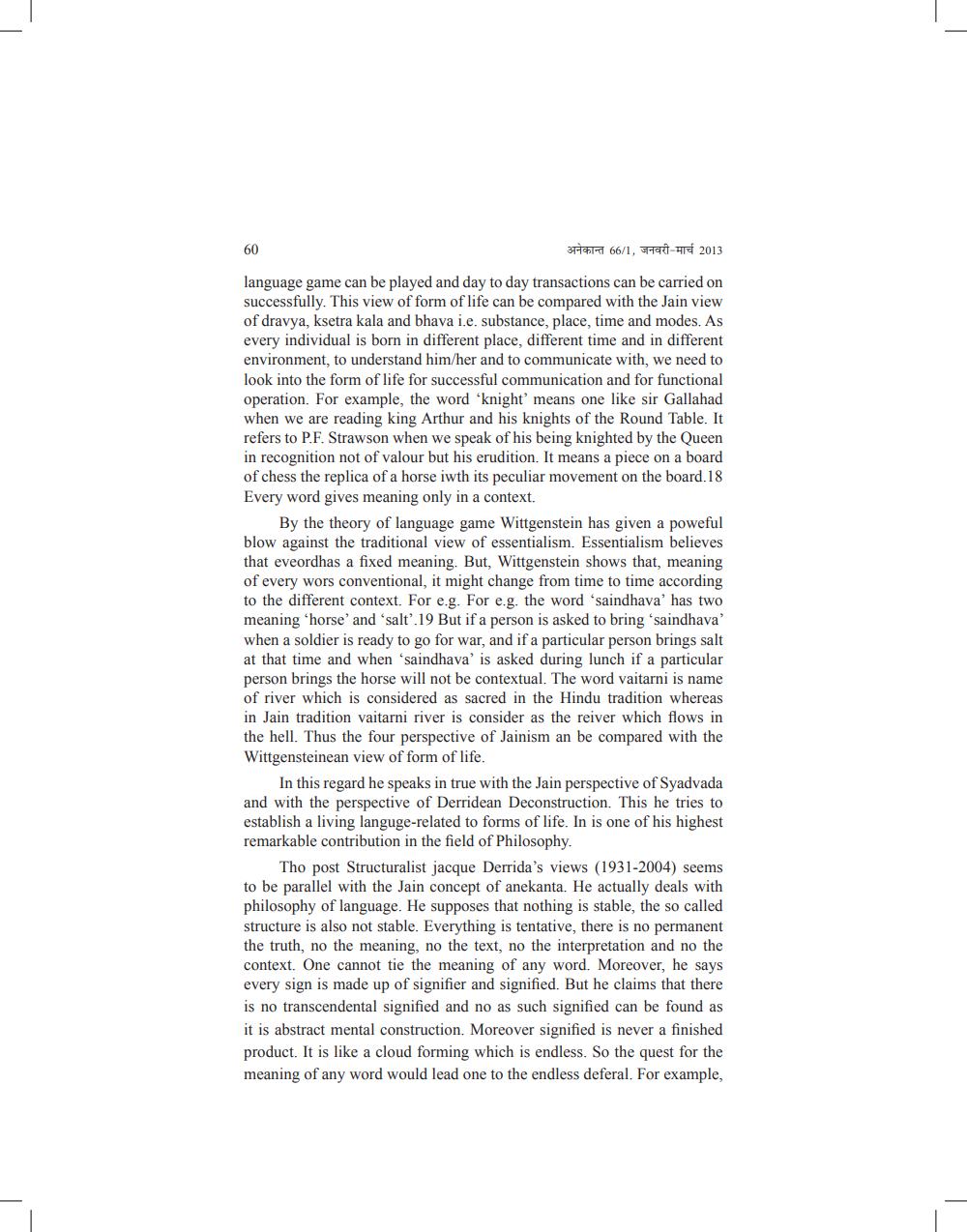________________
अनेकान्त 66/1 जनवरी-मार्च 2013
language game can be played and day to day transactions can be carried on successfully. This view of form of life can be compared with the Jain view of dravya, ksetra kala and bhava i.e. substance, place, time and modes. As every individual is born in different place, different time and in different environment, to understand him/her and to communicate with, we need to look into the form of life for successful communication and for functional operation. For example, the word 'knight' means one like sir Gallahad when we are reading king Arthur and his knights of the Round Table. It refers to P.F. Strawson when we speak of his being knighted by the Queen in recognition not of valour but his erudition. It means a piece on a board of chess the replica of a horse iwth its peculiar movement on the board. 18 Every word gives meaning only in a context.
60
By the theory of language game Wittgenstein has given a poweful blow against the traditional view of essentialism. Essentialism believes that eveordhas a fixed meaning. But, Wittgenstein shows that, meaning of every wors conventional, it might change from time to time according to the different context. For e.g. For e.g. the word 'saindhava' has two meaning 'horse' and 'salt'.19 But if a person is asked to bring 'saindhava' when a soldier is ready to go for war, and if a particular person brings salt at that time and when 'saindhava' is asked during lunch if a particular person brings the horse will not be contextual. The word vaitarni is name of river which is considered as sacred in the Hindu tradition whereas in Jain tradition vaitarni river is consider as the reiver which flows in the hell. Thus the four perspective of Jainism an be compared with the Wittgensteinean view of form of life.
In this regard he speaks in true with the Jain perspective of Syadvada and with the perspective of Derridean Deconstruction. This he tries to establish a living languge-related to forms of life. In is one of his highest remarkable contribution in the field of Philosophy.
Tho post Structuralist jacque Derrida's views (1931-2004) seems to be parallel with the Jain concept of anekanta. He actually deals with philosophy of language. He supposes that nothing is stable, the so called structure is also not stable. Everything is tentative, there is no permanent the truth, no the meaning, no the text, no the interpretation and no the context. One cannot tie the meaning of any word. Moreover, he says every sign is made up of signifier and signified. But he claims that there is no transcendental signified and no as such signified can be found as it is abstract mental construction. Moreover signified is never a finished product. It is like a cloud forming which is endless. So the quest for the meaning of any word would lead one to the endless deferal. For example,




